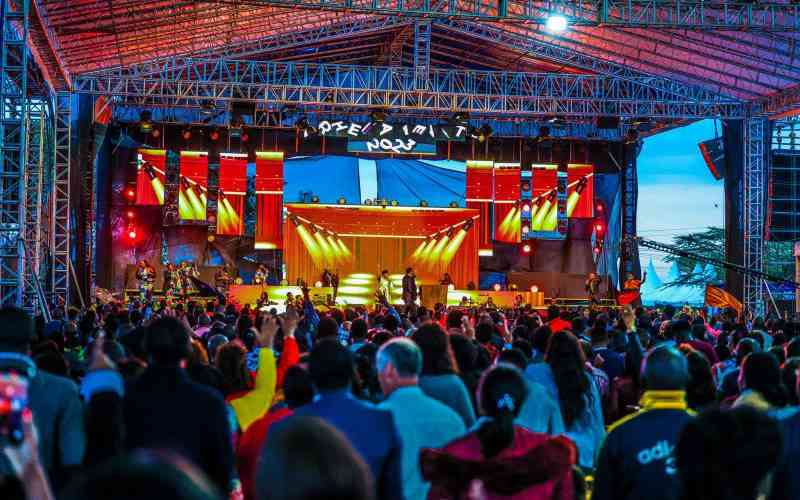×
The Standard e-Paper
Kenya’s Boldest Voice

Christian meetings still draw crowds that politicians salivate for. Even with crowd-buying, politicians would not afford the Rhema Feast size that thronged Kasarani this last week!
The gathering deposed the theory that large crowds are only available on weekends. The multitude gathered voluntarily for a whole working week. Clearly, Kenyans still count spirituality as a prime part of their life. God is still way ahead of government when it comes to the citizens' rank of trust.